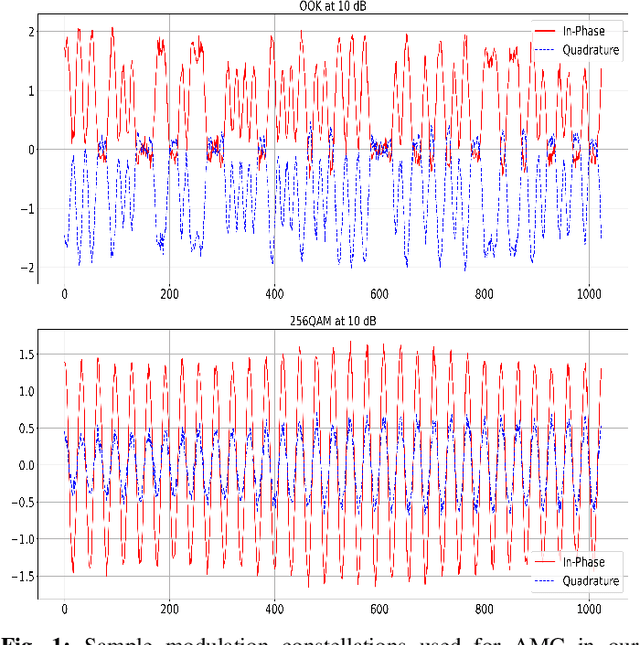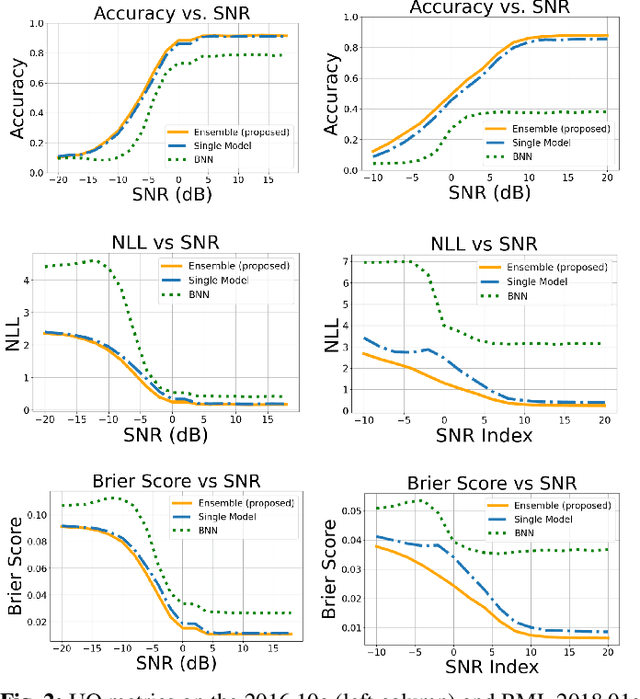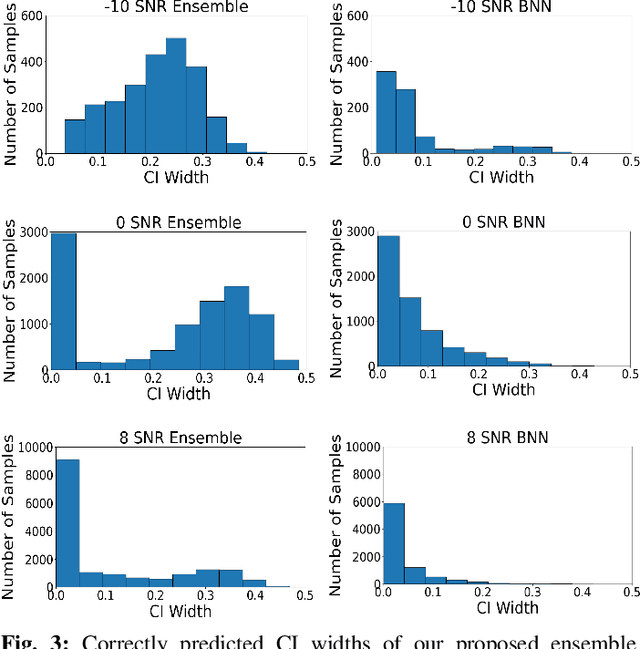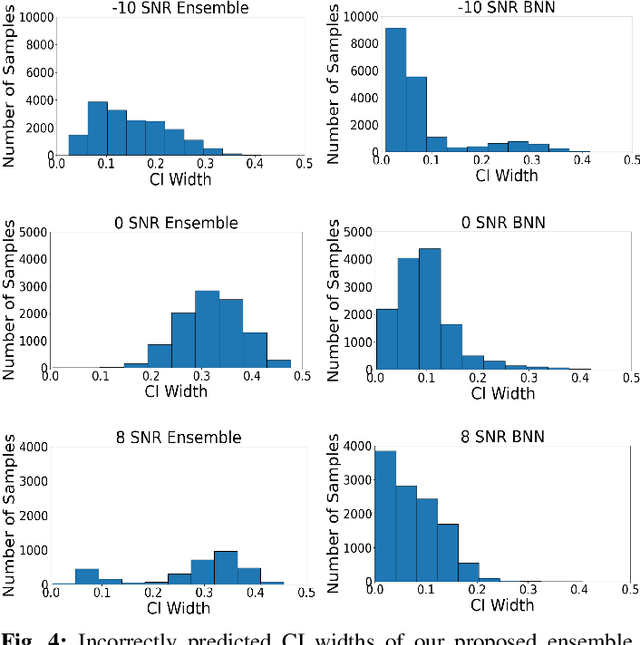An Uncertainty Quantification Framework for Deep Learning-Based Automatic Modulation Classification
Paper and Code
Mar 06, 2025



Deep learning has been shown to be highly effective for automatic modification classification (AMC), which is a pivotal technology for next-generation cognitive communications. Yet, existing deep learning methods for AMC often lack robust mechanisms for uncertainty quantification (UQ). This limitation restricts their ability to produce accurate and reliable predictions in real-world environments, where signals can be perturbed as a result of several factors such as interference and low signal-to-noise ratios (SNR). To address this problem, we propose a deep ensemble approach that leverages multiple convolutional neural networks (CNNs) to generate predictive distributions, as opposed to point estimates produced by standard deep learning models, which produce statistical characteristics that quantify the uncertainty associated with each prediction. We validate our approach using real-world AMC data, evaluating performance through multiple UQ metrics in a variety of signal environments. Our results show that our proposed ensemble-based framework captures uncertainty to a greater degree compared to previously proposed baselines in multiple settings, including in-distribution samples, out-of-distribution samples, and low SNR signals. These findings highlight the strong UQ capabilities of our ensemble-based AMC approach, paving the way for more robust deep learning-based AMC.
 Add to Chrome
Add to Chrome Add to Firefox
Add to Firefox Add to Edge
Add to Edge